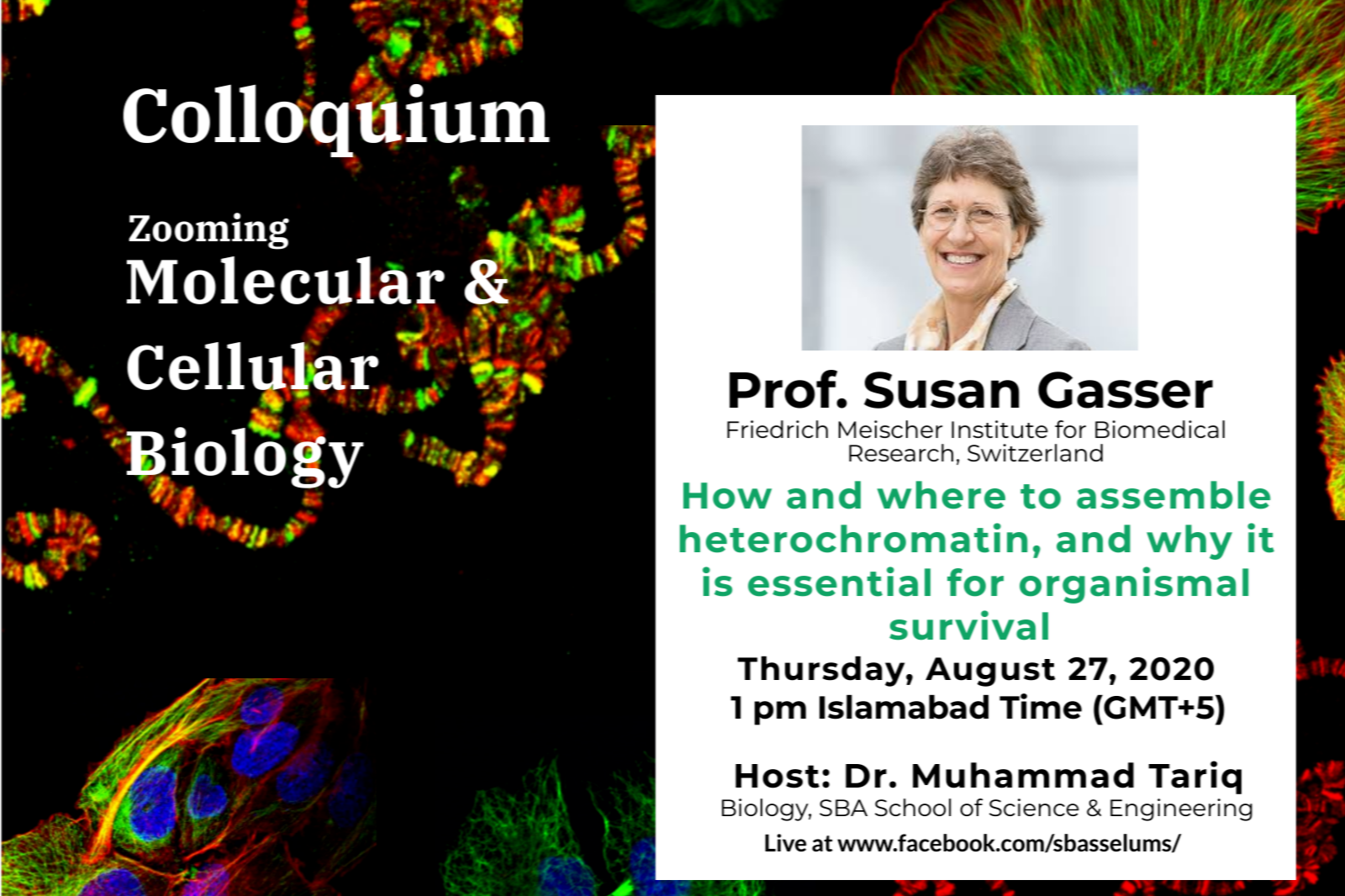
How and where to assemble heterochromatin, and why it is essential for organismal survival
Prof. Dr. Susan Gasser gave a talk in our Colloquium “zooming Molecular & Cellular Biology” series. Prof. Gasser is a highly accomplished scientist who has contributed significantly to the fields of DNA replication, DNA damage repair and gene regulation. Having served FMI Switzerland for fourteen years as Director, Prof. Gasser is a member of the ETH Board, the Swiss Science Council, and sits on the scientific advisory board of the Helmholtz institutes of Germany, the Max Planck Institute for Biophysical chemistry, the Francis Crick Institute in London and the European Molecular Biology Laboratory (EMBL) in Heidelberg. At the Swiss National Science Foundation (SNF) she chaired the Equality Commission from 2014 to the end of 2019.
Susan Gasser studied biology and biophysics at the University of Chicago and received her doctorate in biochemistry from the University of Basel. From 1986 she was group leader at the Swiss Institute for Experimental Cancer Research (ISREC) in Lausanne until 2001, when she was appointed full professor at the University of Geneva. From November 2004 until March 2019 she was Director of the Friedrich Miescher Institute for Biomedical Research (FMI), where she still heads her research group. Since 2005 she has also been a full professor for molecular biology at the University of Basel. Gasser is a member of the ETH Board, the Swiss Science Council, and sits on the scientific advisory board of the Helmholtz institutes of Germany, the Max Planck Institute for Biophysical chemistry, the Francis Crick Institute in London and the European Molecular Biology Laboratory (EMBL) in Heidelberg. At the Swiss National Science Foundation (SNF) she chaired the Equality Commission from 2014 to the end of 2019.

